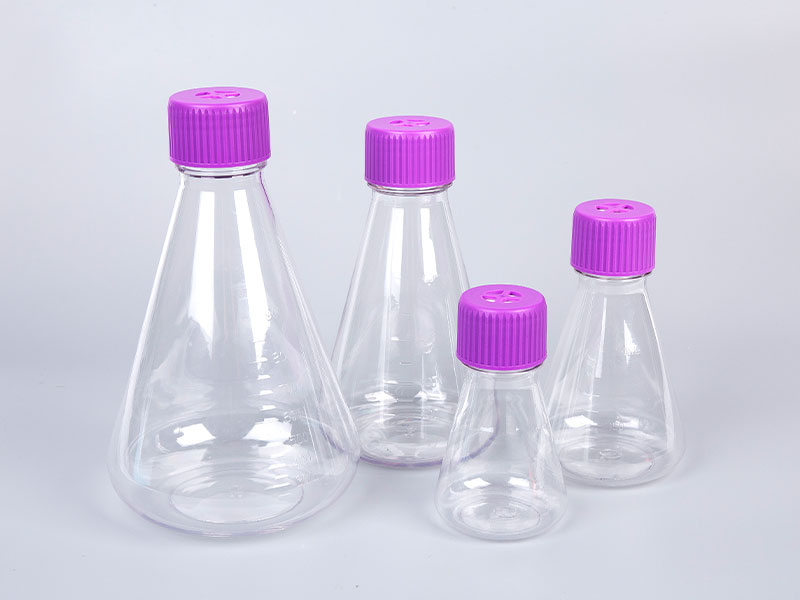What are the advantages of using PETG material over glass or other plastics for shaker flasks?
When it comes to cell culture applications, the choice of materials for shaker flasks is crucial for ensuring optimal growth conditions for various types of cells, including bacteria, fungi, animal, and plant cells. The Bioland™ Cell Shaker, made from high-quality PETG (polyethylene terephthalate glycol-modified), offers several advantages over traditional glass and other plastic materials. One of the most notable benefits of PETG is its superior clarity and transparency, which allows researchers to easily monitor cell growth and assess the condition of the culture without the need for frequent opening of the flask. This feature is particularly important in maintaining a sterile environment and minimizing contamination risks, as it reduces the frequency of exposure to external elements.
Additionally, PETG provides excellent mechanical strength and durability, making it less prone to breakage compared to glass flasks. This characteristic not only enhances safety in laboratory settings—where shattered glass can pose significant hazards—but also contributes to the overall cost-effectiveness of using disposable shaker flasks. Unlike glass, which requires careful handling and often incurs higher shipping costs due to its weight, PETG flasks are lightweight and designed for convenient disposal after use, streamlining the workflow for busy laboratories. Moreover, the molded graduations on PETG flasks allow for precise volume measurements, facilitating accurate experimental setups and ensuring consistency across different trials.

Another critical aspect of PETG is its compatibility with various sterilization processes. The Bioland™ Cell Shaker guarantees a sterile environment, being RNase/DNase free, pyrogen-free, and cytotoxic-free, which is essential for sensitive biological applications. While glass can be easily sterilized, it may not be feasible for every laboratory setting due to the risks of breakage and the need for thorough cleaning. PETG, however, can withstand sterilization techniques such as gamma irradiation, making it a reliable choice for researchers looking to minimize contamination without compromising on the integrity of their experiments.
In terms of environmental impact, PETG is also more advantageous than some other plastics, as it can be recycled in certain systems. This consideration aligns with the growing emphasis on sustainability in scientific research, as more laboratories seek to reduce their ecological footprint. Ultimately, the use of PETG in shaker flasks like the Bioland™ Cell Shaker represents a thoughtful intersection of practicality and performance, catering to the evolving needs of modern research while promoting safety, efficiency, and environmental responsibility.
For more information, please call us at +86-0571-87993109 or email us at hzbioland@126.com.
Aseptic vacuum filters, like Bioland™ disposable vacuum filtration units, are designed for high-effi...
Whether used in the food hygiene industry, water monitoring, or research labs, selecting the right m...
Narrow-mouth reagent bottles are essential tools in laboratories, offering precise storage solutions...
In laboratory diagnostics, particularly in PCR (Polymerase Chain Reaction) testing, efficiency is pa...
When working with the Bioland™ Cell Shaker, one of the most crucial factors in ensuring successful c...
Polymerase chain reaction (PCR) is one of the most vital techniques in molecular biology, allowing s...

 中文简体
中文简体 English
English Español
Español русский
русский











